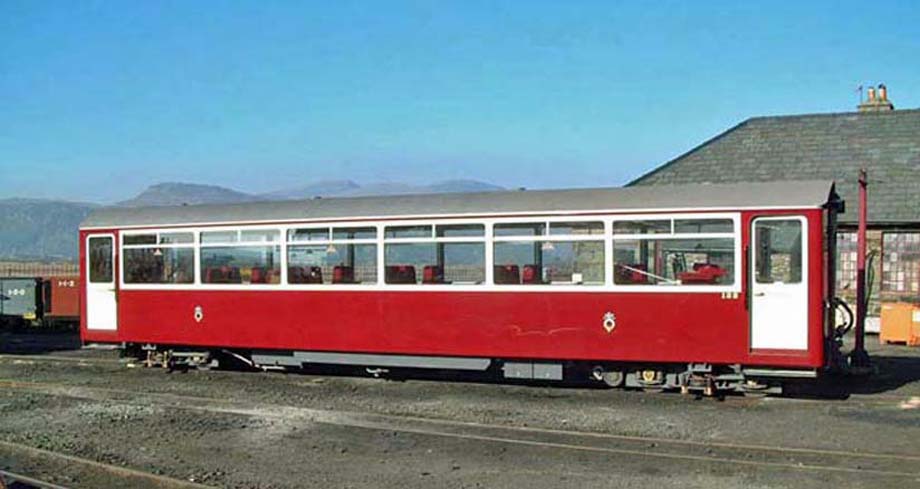Porthmadog Wales - Baby carriage was tearful when the Thin Controller arrived for work.
"Cheer up, Baby," he said.
"You'll be taking tourists around Snowdonia again today."
"But do you remember those important people in London?" said Baby.
"You mean the Government people who wrote a nice letter in 2003 just so you could carry passengers?"
"Yes," sobbed Baby.
"Now they might tear up the letter and make me useless again."
It may read like the work of Thomas the Tank Engine author Wilbert Awdry but a bureaucratic banana skin has been dropped before the Ffestiniog & Welsh Highland Railway, which helped influence the writer's work.
Alongside the railways' quaint little Victorian coaches is number 122, built in a matching style a decade ago as more and more passengers flocked to the twin railways, which carried a record-breaking 300,000 visitors into Snowdonia National Park this year.
Official accessibility regulations apply to British railway coaches built after 1999, but a wheelchair-friendly toilet simply wouldn't fit inside the tiny narrow gauge coaches that ply between Porthmadog and Blaenau Ffestiniog.
So the UK Government granted a special order in 2003 exempting "Vehicle Number 122" from the regulations.
However, that order is now among 200 railway regulations which may be thrown onto the Coalition Government's bonfire of "red tape".
If the Ffestiniog order goes up in flames, coach 122 may no longer be able to carry passengers unless the Government makes alternative arrangements.
The Government's "Red Tape Challenge" is examining more than 21,000 statutory rules and regulations, aiming to reduce the burdens on businesses and society.
Introducing the rail Red Tape Challenge this month, the Department for Transport (DfT) said, "The presumption is that regulations will go, unless it can be justified why a regulation should be kept."
A DfT spokesman said the Ffestiniog order and others were on the Red Tape Challenge website for the public and stake holders to comment on, as part of the process of identifying regulations considered to be of benefit to passengers.
Paul Lewin, general manager of the Ffestiniog & Welsh Highland Railway, said the rail accessibility rules, designed for main line trains such as the Virgin Pendolino, should never have applied to Britain's heritage railways, which let visitors experience steam-age travel.
The Heritage Railway Association had campaigned for Britain's preserved railways to be covered separately.
"We were aiming for a block exemption so that people didn't have to put a wheelchair toilet in a carriage dating back 150 years, which would be crazy," said Mr. Lewin.
"You can't physically fit a wheelchair toilet pack from a Virgin Pendolino into a narrow gauge train, because it's wider than the coaches."
His railways have their own ways of catering for disabled visitors.
There are ramps for wheelchairs to board trains and guards shout out station names, because tannoy announcements, or electronic displays, would spoil the interior ambience.
The 2003 exemption order, signed by then transport minister Tony McNulty, lists the ways coach 122 doesn't comply with the rules, including:
- No audible device to warn when doors are unlocked;
- No public address system;
- No wheelchair space;
- Door handles too stiff.
Getting that exemption was so complicated that managers stopped building new coaches at their Porthmadog workshops and have since imported second-hand ones, which are exempt from the rulings, from Romania.
Author unknown.
(likely no image with original article)
(usually because it's been seen before)
(the image is altered or fake)
provisions in Section 29 of the
Canadian Copyright Modernization Act.



